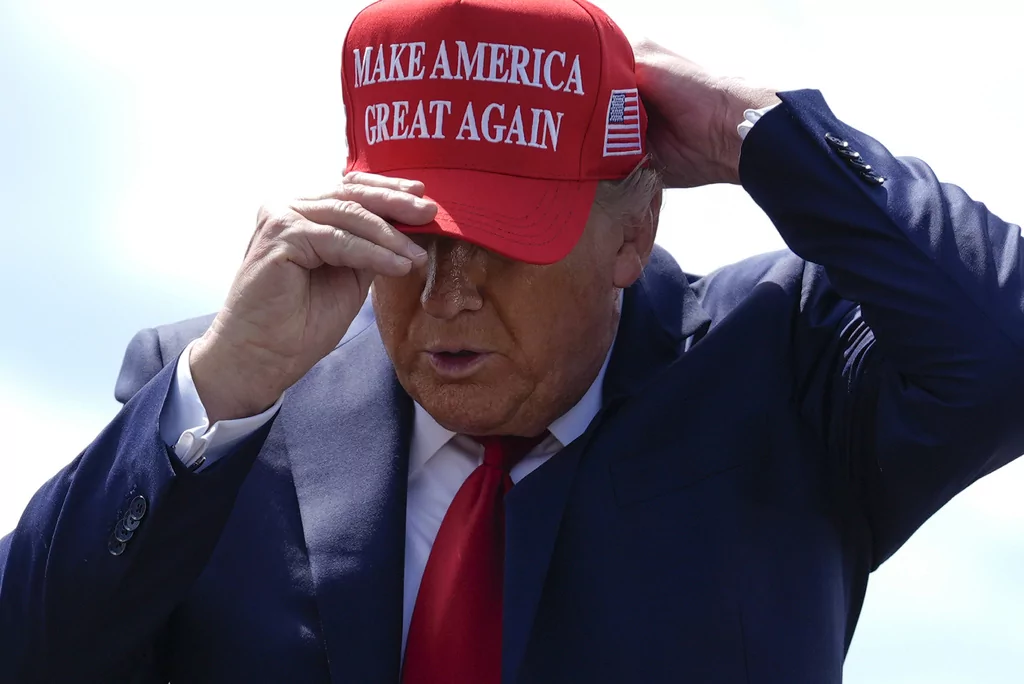

Former Rep. Matt Gaetz’s withdrawal from consideration as attorney general raises the question of how much deference the incoming Senate Republican majority owes President-elect Donald Trump on his Cabinet nominations.
“Donald J. Trump just won a major electoral victory. His coattails turned a 49-51 senate to a 53-47 senate,” Vice President-elect J.D. Vance posted on X on the eve of Gaetz’s withdrawal. “He deserves a cabinet that is loyal to the agenda he was elected to implement.”
TRUMP CABINET PICKS: WHO’S BEEN TAPPED TO SERVE IN THE PRESIDENT-ELECT’S ADMINISTRATION
This debate comes as liberals have increasingly questioned whether Trump, whose share of the popular vote dropped below 50% for the first time as deep-blue California keeps counting votes more than two weeks after the election, has any mandate at all.
“Mandate? Fuller election results increasingly show GOP gains were small,” reads a representative headline in the Washington Post. “Donald Trump has NOT won a majority of the votes cast for president,” blared the Nation.
At the same time, Trump was only the second Republican presidential candidate to win the popular vote since 1988, he swept all seven battleground states, and he outperformed every Republican Senate candidate in a competitive race with the exception of Larry Hogan in the blue state of Maryland. There were noticeable shifts toward him in both red and blue states.
That’s not Lyndon Johnson in 1964, Richard Nixon in 1972, or Ronald Reagan in 1984, the latter two being 49-state landslides. But it’s not nothing.
FIVE THEORIES FOR WHY TRUMP NOMINATED GAETZ FOR ATTORNEY GENERAL
All talk of “mandates,” “landslides,” and “realignment” needs to be recalibrated for the post-2000 polarized national electoral environment. Ever since that presidential election was decided by a few hundred votes in Florida, after a protracted recount fight and an unprecedented Supreme Court ruling, the race for the White House every four years has typically been close.
The biggest popular vote margin in the past quarter-century belongs to Barack Obama, who won by 7.2 points. The Democrat also carried 28 states, the District of Columbia, and Nebraska’s 2nd Congressional District to rack up 365 electoral votes.
But even in that race, run during a recession, global financial meltdown, and the unpopular war in Iraq, with the incumbent Republican president boasting a mere 28% approval rating, Obama managed just 52.9% of the vote.
If Obama had a mandate, with Democratic supermajorities in both houses of Congress, it was gone almost as soon as he used it. There was a prolonged fight over Obamacare, which culminated in its enactment — and Republicans gaining 63 House seats to reclaim the majority in the 2010 midterm elections. Obama was reelected by a smaller margin than in his first election, but left office with Republicans having unified control of the federal government.
Other than Obama’s first term, since 2000 two popular vote losers have become president and the presidents who won the popular vote received 50.7% in 2004, 51.1% in 2012, and 51.4% in 2020. Trump’s percentage is likely to be smaller than those, but still a higher share of the vote Bill Clinton won in either of his elections, with Ross Perot running a strong third both times.
Trump put together a plurality coalition that his political opponents, and many of his timorous supporters, thought was impossible with him at the top of the ticket. It is the best model for national Republican electoral success in 20 years and capitalized on the erosion of the coalition that elected the last two Democratic presidential candidates.
That’s part of the reason why Trump wants unconventional picks in his Cabinet, in addition to having more control of the executive branch than he did in his first term. Trump did not win exclusively with conventional Republican voters, and he wants to reward people like Robert F. Kennedy Jr. and Tulsi Gabbard who crossed over and supported him. Even some of his most committed Republican backers more closely resemble Gaetz than incoming Senate Majority Leader John Thune (R-SD).
CLICK HERE TO READ MORE FROM THE WASHINGTON EXAMINER
But most Republican senators did not need that kind of crossover support to win their seats and represent safe red states where Trump may be popular but little to no reimagining of the GOP brand is necessary to prevail in elections.
Vance is advising his Republican Senate colleagues to dance with the one who brought them, even if they don’t feel comfortable with some of Trump’s other dance partners. But Vance may be in more urgent need of holding the Trump coalition together come 2028 than a majority of the Senate GOP conference.